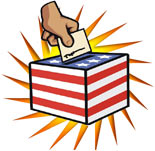The doorbell rings. Two women want to discuss a religion you are not interested in. You tell them no thanks and shut the door.
You notice that you have lost weight on your new diet. You plan to tell your slightly overweight friend about the diet. She might like to try it, too.
You open the mail. A letter from your bank outlines a service you do not want. You toss it in the trash.
You read an article about two schools of thought concerning a new treatment for skin cancer. It will require more testing and rigorous debate as to which has the best cure rate, least side effects, and so on.
You read another article about Bhutan, an Asian nation in the eastern Himalaya mountains, predominantly Buddhist. Bhutan’s constitution guarantees religious freedom, but conversion is unlawful. Buddhism is, for many, a part of their country’s culture. Bhutan’s Christians have sought clarification. Bhutan’s Prime Minister Jigmi Yoser Thinley states his opposition to religious conversion: “It’s the worst form of intolerance. And it divides families and societies.”
When do we have the right to attempt the persuasion of someone to a set of convictions that are meaningful to us? And to what degree should we persuade? Or should we ever persuade?
Is it intolerant to believe, as in one of the above examples, that one cancer treatment may be better than another and to lobby for that practice?
Attempts to persuade range from political and religious arguments to medical debates and ads for commercial products. Some are hardly life altering, but some are. Some can be proved by the scientific method, and some can’t.
Our Constitution gives this country’s citizens the right to freedom of speech and of religion. A few use these freedoms in ways that we abhor, but diverse views are a necessary part of growth and advancement. Cultures become static if debate and change are forbidden. Political ads may annoy us but few of us would choose to live in Syria or other countries where opposing views that question the regime are not allowed. Persuasion becomes intolerance when the persuader fails to respect another’s opinions or the person’s right to choose or to be left alone if they wish.
Of course, opening a culture to possible change is risky. Could Christianity threaten our American way of life—discouraging rampant consumerism, for example—if genuinely practiced?
 1) How much more influence does a citizen gain who spends a great deal of money on a candidate compared with an average citizen who merely casts a ballot? Can votes be “bought” in the sense of understood favors toward certain policies if one accepts money for a campaign?
1) How much more influence does a citizen gain who spends a great deal of money on a candidate compared with an average citizen who merely casts a ballot? Can votes be “bought” in the sense of understood favors toward certain policies if one accepts money for a campaign? 5) Has money trumped political parties? Do wealthy individuals have more power to win elections than Democrats or Republicans or other political parties?
5) Has money trumped political parties? Do wealthy individuals have more power to win elections than Democrats or Republicans or other political parties?
